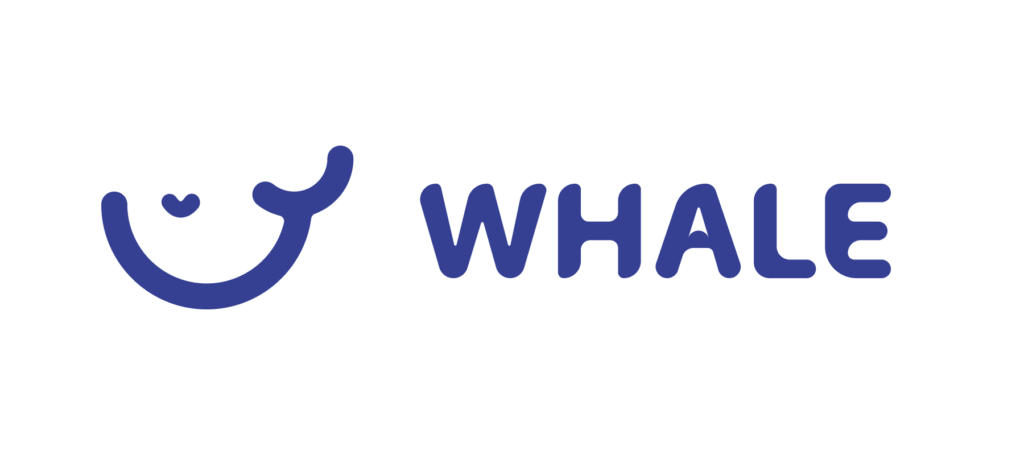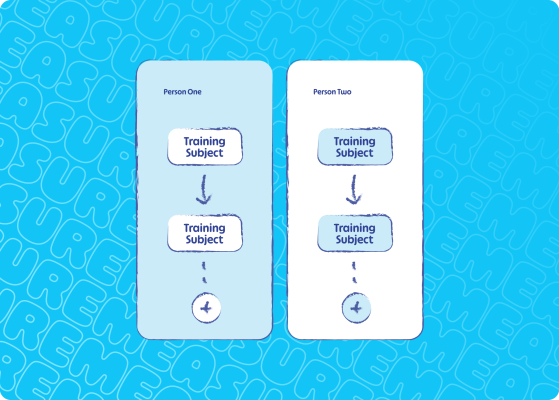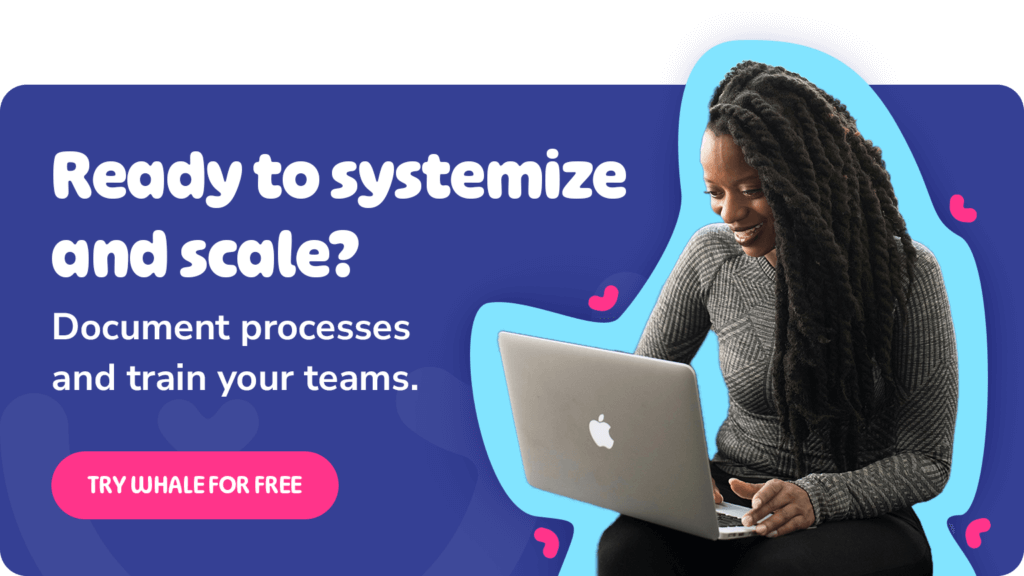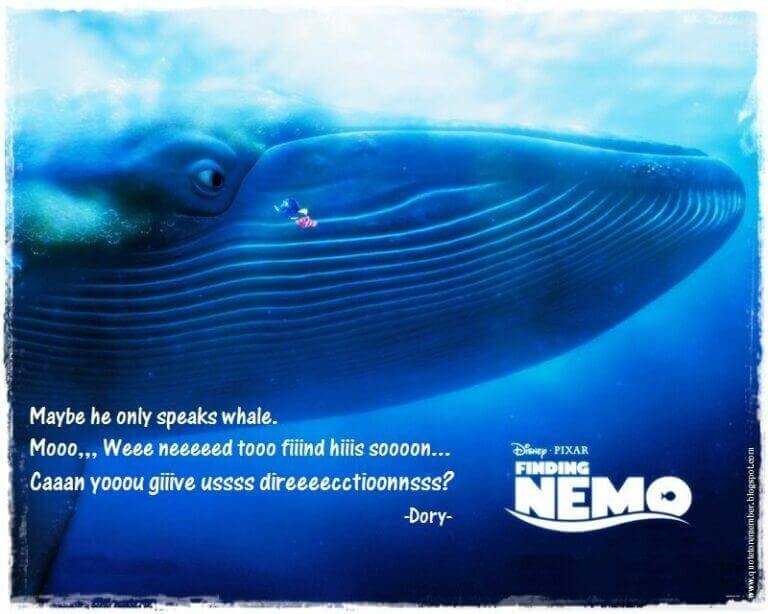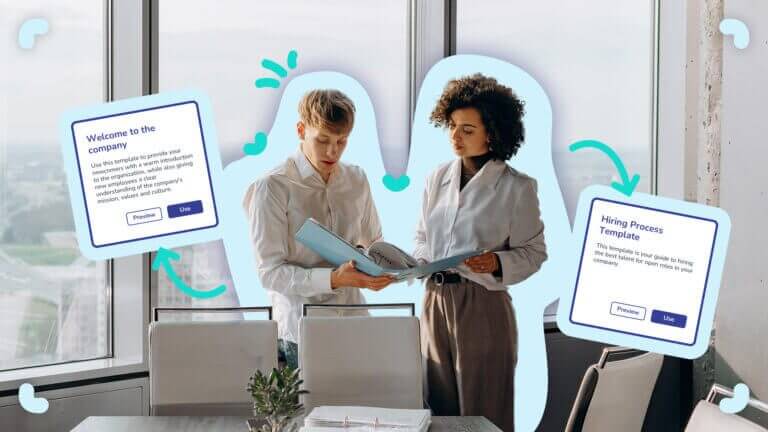Introduction: The Dory Effect - Understanding New Hires
What does Dory the Fish have to do with new hires and the onboarding process? As it turns out a lot!
In the animated film Finding Nemo, the character Dory, a lovable blue tang, captures our hearts with her endearing personality. However, Dory’s short-term memory loss often leads to frustration, particularly for Marlin, as they embark on a perilous journey to find Marlin’s son, Nemo.
Dory is often regarded as the most defining character of the Finding Nemo franchise. Her cheerful and ditsy personality proved to be popular, especially during comedic moments such as trying to talk to a whale.
At Whale, we love a little sea metaphor, and there’s none so perfectly correlated with Dory and how new hires learn. Surprisingly, there’s a valuable lesson to be learned from Dory’s character when it comes to understanding the limitations of new hires.
The thing is that your new hires are Dory’s.
You need to remember this when you’re onboarding new team members.
They’re probably super excited to join your team and are eager to learn and get started on their mission but there’s ALOT to take in. Just as Dory struggles to retain crucial details, new employees may find themselves overwhelmed by the influx of knowledge, procedures, and expectations during their onboarding process.
When bombarded with an excess of information, new hires can experience cognitive overload, hindering their ability to grasp and retain important concepts. This overload can lead to frustration and hinder their performance, leaving them feeling like Dory, constantly swimming in a sea of confusion.
Apart from setting up a comprehensive onboarding process that should last several months, hiring organizations need to provide appropriate support, guidance, and a structured learning environment to help new employees navigate their roles effectively.
By acknowledging the Dory effect, employers can set realistic expectations and adopt strategies that facilitate the learning process for new hires. In this article, we explore 4 ways to help new hires navigate the learning curve.
Stay tuned as we dive deeper into the world of new hires, unraveling the secrets to fostering their growth and success within your team.
Setting Realistic Expectations: Recognizing the Capacity of New Hires
Remember your first day? Was it a whirlwind of meetings, handshakes and information overload? Or worse in that you were stuck at home…
One of the key aspects of effectively managing overwhelm is setting realistic expectations for new hires.
Understanding their limited capacity for information retention is essential for creating an environment that fosters their growth and development. Instead of overwhelming them with a deluge of tasks and responsibilities, it is important to establish a gradual learning curve that allows them to build their knowledge and skills over time. By recognizing their learning limitations, organizations can provide structured training programs, clear objectives, and manageable workloads that align with the new hires’ abilities.
ACTION STEP 💡
Set realistic expectations that not only reduce the frustration experienced by new employees but also promotes a sense of accomplishment as they make progress in their roles day by day. Communicate expectations clearly and most importantly, have this documented! Make sure new hires have the necessary resources and guidance to succeed.
The Frustration Factor: Managing Expectations and Patience
Navigating the Dory effect can be a source of frustration for both new hires and hiring managers or colleagues.
Acknowledging and addressing these frustrations is important to create a positive and productive work environment. Hiring managers may find themselves impatient or disappointed when new hires struggle to remember instructions or make mistakes due to their limited capacity for information retention. However, it’s crucial to approach these situations with empathy and patience.
We’ve all been in a place where we were scared to ask a question. Remember to have empathy and also to foster open communication, and creating a supportive atmosphere that encourages growth and learning for new hires.
Create a culture of understanding, patience, and an atmosphere where new hires feel comfortable asking questions, seeking clarification, and learning from their mistakes.
ACTION STEP 💡
Assign new hires a ‘buddy’ in the team during their onboarding process whom they can ask questions and lean on when needed.
Navigating the Learning Curve: 4 Strategies for Effective Onboarding
The onboarding process plays a crucial role in helping new hires overcome the challenges associated with remembering information. It’s essential to provide a structured and comprehensive onboarding program that supports their learning and integration into the organization. A well-designed onboarding process includes clear objectives, step-by-step guidance, and a balance between theory and practical application.
Breaking down the information into manageable chunks and delivering it in digestible formats such as training modules, hands-on exercises, and shadowing opportunities can enhance the new hires’ understanding and retention. Additionally, assigning mentors or buddies who can provide ongoing support and answer questions can be immensely beneficial. By implementing these strategies, organizations can empower new hires to navigate the learning curve effectively, build confidence, and gradually develop the knowledge and skills required for their roles.
These 4 strategegies will assist in designing an effective onboarding program that addresses the specific needs of new hires and facilitates a smooth transition into their positions.
1. Chunking Information: Break it Down
To accommodate the limited information retention capacity of new hires, it is crucial to adopt a strategy of chunking information. Chunking involves breaking down complex concepts or tasks into smaller, more manageable pieces.
By presenting information in bite-sized chunks, new hires can better absorb and retain the essential details. This can be achieved through various methods, such as organizing training materials into modules or modules into lessons, creating checklists, and providing clear, concise instructions.
By employing this approach, organizations can alleviate the overwhelm often experienced by new hires, allowing them to focus on one piece of information at a time and gradually build a solid foundation of knowledge.
How this works in Whale?
Set up an onboarding flow for new hires that spans over time to deliver bite size pieces of information as needed.
2. Reinforcing Learning: Repetition and Practice for Long-Term Retention
In order to combat the short-term memory limitations of new hires, it is essential to implement strategies that reinforce learning and promote long-term retention.
Repetition and practice play a crucial role in solidifying knowledge and skills. By providing opportunities for new hires to review and apply what they have learned, organizations can enhance their understanding and retention of information.
This can be achieved through activities such as quizzes, interactive workshops, and hands-on exercises. Additionally, incorporating spaced repetition techniques, where information is revisited at intervals over time, can aid in strengthening memory and preventing forgetting. By encouraging continuous learning and practice, organizations can help new hires overcome the Dory effect and develop a solid foundation of expertise in their roles.
How this works in Whale? 🐳
Offer timely and relevant reminders to your new team members with contextual suggestions – so they always remain on top of their game. Additionally, utlize quizzes in Whale to help reinforce knowledge.
3. Utilizing Support Systems: Mentors and Resources
Navigating the challenges of new hire onboarding can be made easier with the presence of strong support systems for new hires. Mentors play a crucial role in providing guidance, support, and a source of knowledge for those entering a new role or organization.
Pairing new hires with experienced mentors allows them to learn from the wisdom and expertise of others, ask questions, and receive personalized advice. Mentors can help alleviate the frustrations and uncertainties associated with a new role by offering reassurance, sharing best practices, and providing valuable insights into the organizational culture.
Additionally, organizations can further support new hires by offering readily accessible resources such as training materials, manuals, online learning platforms, and internal knowledge repositories. These resources can serve as references that new hires can consult whenever they need to refresh their memory or deepen their understanding of a particular topic. By investing in robust support systems, organizations can empower new hires to navigate their new roles with confidence and ease.
How this works in Whale? 🐳
Remember in Finding Nemo how Whale helped Dory and Marlin to Sydney? When you need help you need a Whale. Human mentors are important but tools like Whale can act a resource for information for new hires and with search functionality can easily be used to find information needed on a specific subject.
4. Harnessing Strengths: Leveraging the Unique Abilities of New Hires
While new hires may face limitations in their information retention, it is equally important to recognize and leverage their unique abilities and strengths. Every individual brings a distinct set of skills, experiences, and perspectives to the table. By identifying and harnessing these strengths, organizations can maximize the potential of new hires and create a diverse and dynamic workforce.
Encouraging new hires to showcase their talents, provide input, and contribute their unique perspectives can lead to innovative ideas and fresh approaches to problem-solving. Additionally, providing opportunities for new hires to apply their existing skills and knowledge, and acknowledging their contributions, can boost their confidence and motivation.
By focusing on their strengths and providing opportunities for growth and development, organizations can empower new hires to overcome overwhelm and nervousness to thrive in their roles. And help the organization thrive in return!
How this works in Whale? 🐳
Don’t underestimate your new hires. You’ve most likely hired them because they come with a wealth of experience and have skills to add to your talent pool. Enable new hires to adapt or create new documentation in their specific roles as they are onboarded. If you don’t have documentation in a specific area, new hires act as a great resource to document as they learn and onboard.
An emergency checklist to keep new hires afloat
So you’ve just hired your new star player and you don’t want them to feel overwhelmed but you feel overwhelmed because you want to make sure they start out right. Now what?
Use this emergency checklist to keep new hires, and YOU, afloat!
✅ Have a clear onboarding program ideally run through some kind of employee onboarding software like Whale.
✅ Ensure each new hire has an onboarding buddy
✅ Share information in bite size chunks I.e. chunking
✅ Reinforce learning
✅ Ensure support for new team members in the form of mentors and resources
✅ Utilize the knowledge of new hires as a way to improve processes
✅ Celebrate your new team members!
DON’T do these things;
❌ Try to create a one-size-fits-all program.
❌ Expect your new team members to know it all by the end of week one.
❌ Follow an undocumented, unstructured approach to onboarding.
Celebrating new hires
Yes, starting a new job is daunting. Yes, your new hires will probably feel overwhelmed at times and may not remember absolutely everything you share with them. That’s ok. It’s all part of the process.
But if you want to hire and retain top talent, then creating the ultimate employee experience from the get-go is essential!
By setting realistic expectations, providing structured onboarding programs, chunking information, reinforcing learning, and offering robust support systems, organizations can empower new hires to navigate their roles effectively and overcome the challenges they face. Moreover, recognizing and leveraging their unique strengths fosters a culture of growth and development.
One of the most essential elements that will aid new hires along their journey and boost their confidence is celebrating their achievements as they grow into valuable assets for your organization.
This starts from day 1! Celebrate new hires as they join with a warm welcome. We always do a team breakfast at Whale as well as a social post and we share our internal podcast so they can learn about their new colleagues.
According to a recent Bersin by Deloitte survey, “organizations with recognition programs had 31% lower voluntary turnover than those without.” And it turns out that recognition doesn’t just lead to lower turnover (and increased employee engagement) but according to research, recognizing quality work and achievements of workgroups increases profits by 29%!
Help new team members find quick wins in their new roles, make sure to listen to their feedback and input, and above all celebrate their addition to the team and any achievements. The more valued people feel, the more likely they are to contribute, feel engaged, and to deliver.
Future-Ready HR:
A Guide to Using AI and Automation for Training
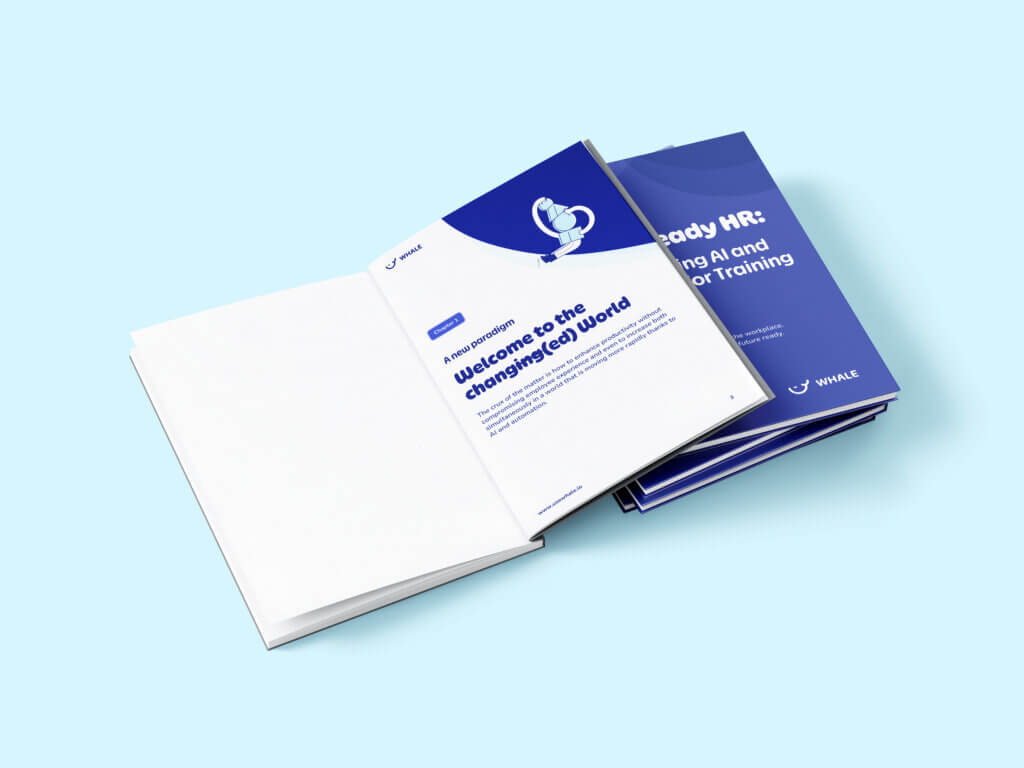
We interviewed the top human resource experts to discover AI and HR trends for the future.
Download the whitepaper to discover how AI and automation can revolutionize onboarding and training, empowering you to develop a future-ready workforce today!
